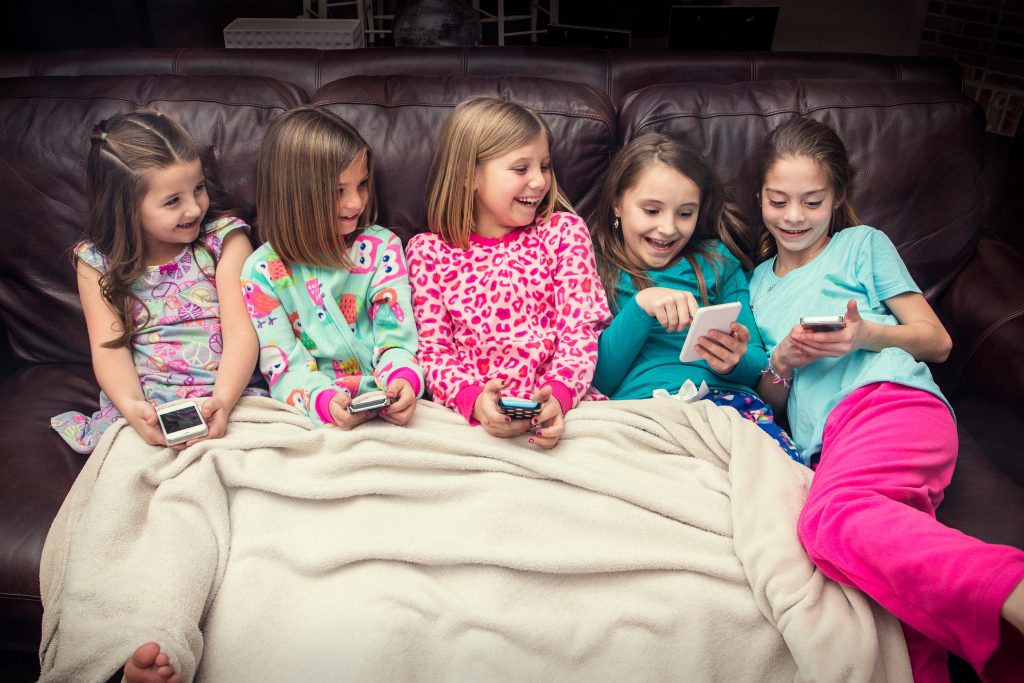
Sleepovers seem like harmless childhood fun—until something goes wrong. What starts as pizza, movies, and sleeping bags can quickly turn into tears, trauma, or a phone call in the middle of the night. While plenty of sleepovers go off without a hitch, others reveal the risks that come with trusting someone else’s home, rules, or level of supervision. Knowing real-life sleepover disasters other families have experienced can help you ask better questions, set clearer boundaries, and make more informed decisions. If your child is starting to get those first invites, these cautionary tales are worth hearing.
1. The “Unattended” Sleepover
One of the most unsettling sleepover disasters involves households where adult supervision is severely lacking or completely absent. In some cases, parents may assume another adult is watching the kids, or they head out for the evening, believing the group will “be fine.” But when tweens or teens are left alone, things can spiral quickly. From sneaking out to unsafe behavior, the absence of adult oversight turns a fun night into a risky situation. Always confirm that a trusted adult will be physically present the entire time.
2. The Secret Sleepover Add-Ons
Another common sleepover disaster happens when uninvited guests show up. Some hosts allow extra kids to come over, or older siblings invite their own friends, turning the environment into one you didn’t agree to. These unexpected additions can bring with them different maturity levels, questionable behavior, or even bullying. Parents may not be notified, assuming all is well. Before saying yes to a sleepover, it’s wise to ask if any older kids or additional guests will be in the home.
3. The Inappropriate Media Marathon
What seems like an innocent movie night can turn uncomfortable when kids are shown content that’s not age-appropriate. Whether it’s scary films, explicit comedies, or unmonitored internet access, exposure to mature media is a sleepover disaster that many parents don’t see coming. Even kids who know their family rules may feel pressured to stay silent or go along with the group. Ask about the planned entertainment ahead of time, and let your child know it’s okay to call you if something feels wrong.
4. The Food Allergy Emergency
A simple oversight can quickly become a dangerous medical situation if food allergies aren’t taken seriously. One parent may forget an ingredient, another child may offer food without checking, or labels might be ignored altogether. Unfortunately, several real-life sleepover disasters have involved emergency room visits because of this kind of mistake. Never assume another parent knows what “nut-free” or “dairy-sensitive” means. Provide clear written instructions, pack your child’s safe snacks, and communicate the allergy’s severity directly.
5. The Unsafe Home Environment
Some sleepovers reveal unsettling truths about a host family’s home life, such as neglect, substance abuse, verbal aggression, or unsecured weapons. Kids may come home anxious, confused, or withdrawn, unsure how to process what they experienced. Parents may be unaware of the environment their child entered until it’s too late. Asking general questions like “Who will be home?” and “What does a typical evening look like?” can help screen for red flags. Trust your gut—if something feels off, it’s okay to decline the invitation.
6. The Emotional Fallout
Even if nothing dangerous happens, sleepover disasters can include emotional stress. Some kids become overwhelmed by homesickness, social pressure, or being left out by other children. They might not sleep, end up in tears, or call you in the middle of the night asking to come home. While this may not sound serious, it can shake a child’s confidence and make them hesitant to attend future social events. Preparing your child ahead of time and letting them know they can leave at any time helps minimize this kind of fallout.
Sleepovers Should Be Safe, Not Stressful
Sleepovers don’t have to be banned, but they do need to be approached with awareness and open communication. These sleepover disasters aren’t meant to scare—they’re meant to inform. Ask thoughtful questions, set clear expectations, and talk to your child about what to do if something feels wrong. With the right precautions, sleepovers can still be fun and safe—but only when trust, safety, and communication come first.
Have you ever experienced a sleepover disaster with your child? What do you wish you had known beforehand? Share your story in the comments!
Read More:
The “Safe Sleepover Talk” Every Parent Should Have (But Most Don’t)
When Is It Not Okay for Your Kids to Spend the Night at a Friend’s House
The post 6 Sleepover Disasters That Every Parent Should Hear About appeared first on Kids Ain't Cheap.







